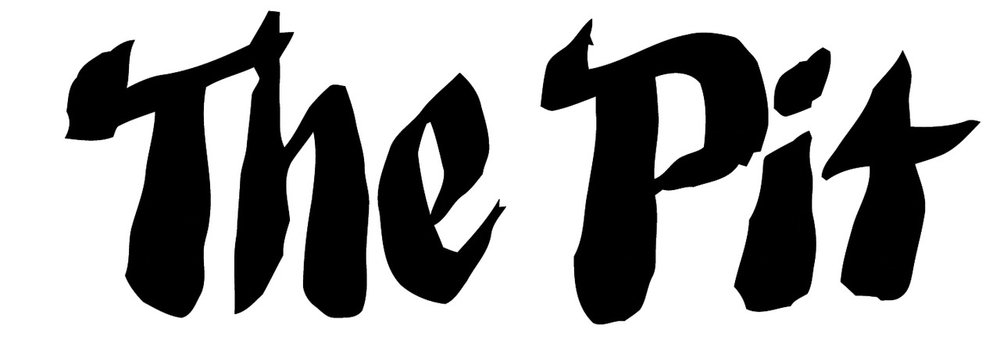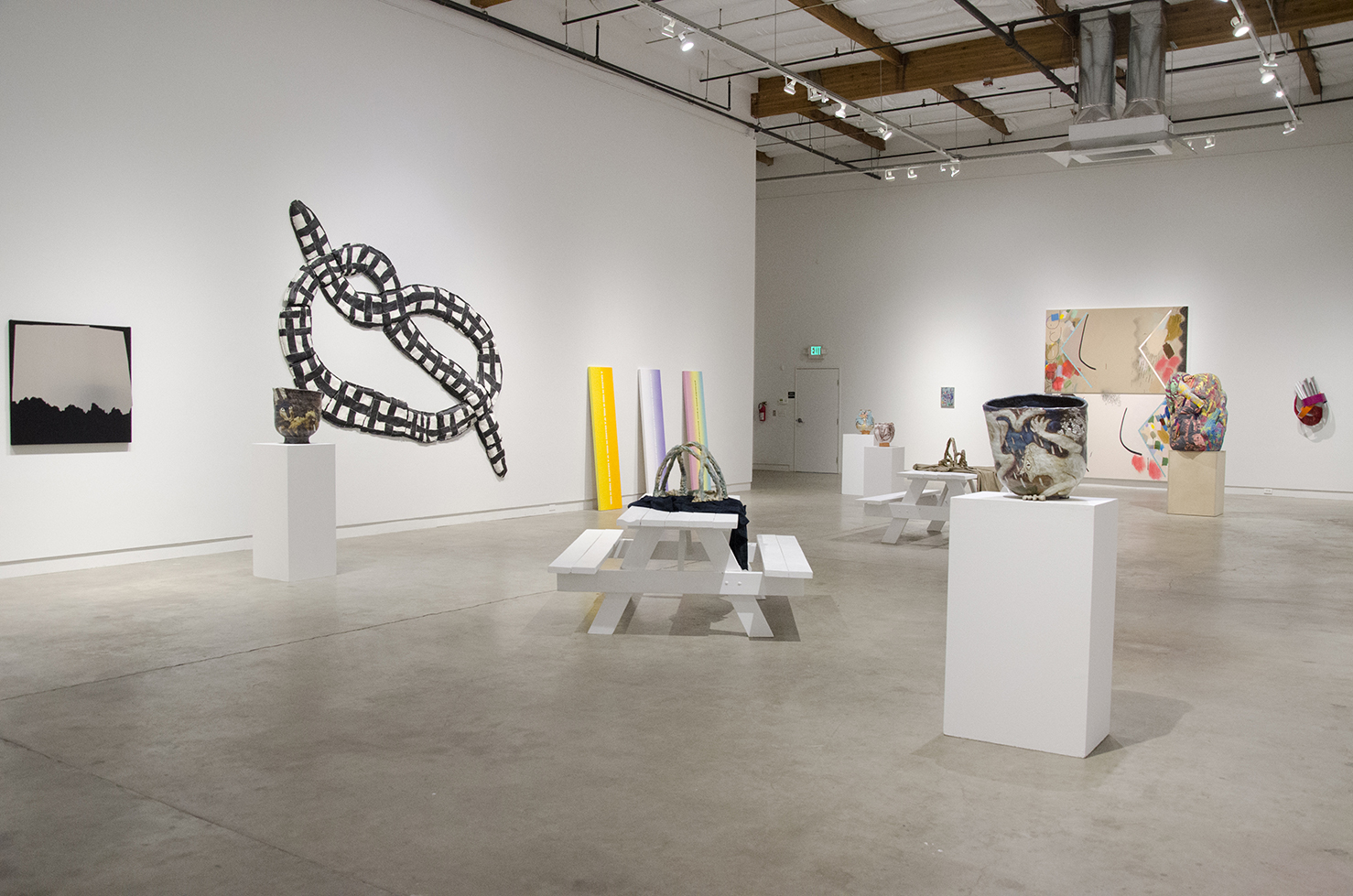The Brightsiders is a group exhibition curated by The Pit's co-founder Adam D. Miller at Verge Center for the Arts, Sacramento CA.
Featuring: Miyoshi Barosh, Alika Cooper, Kim Fisher, Bella Foster, Eve Fowler, Karin Gulbran, Aiko Hachisuka, Julia Haft-Candell, Liz Larner, Caitlin Lonegan, Allison Miller, Rebecca Morris, Laura Owens, Jennifer Rochlin, Amanda Ross-Ho, Anna Sew-Hoy, Nora Shields, Lara Schnitger
June 10 – August 20, 2017
Verge Center for the Arts is pleased to present The Brightsiders, curated by Adam D. Miller. The exhibition brings together painting and sculpture from eighteen artists based in Los Angeles.
The Brightsiders is not an attempt to define a Los Angeles aesthetic, but rather bring an aspect of the LA art community that have a shared dialog, and conceptual interest to California’s capitol city. It is impossible to say that any type of art is “uniquely LA” or “typical of LA” because all types of artists reside here with such diverse practices. The artists selected for The Brightsiders make work that incorporate aspects of LA culture, with the re-occurring theme of transience running through all the works. LA itself is somewhat of a transient city, as few artists are able to stay in their studios for more than a few years and it’s not surprising that transition, temporality, and instability seem to be focal points for some of the most interesting art in the city.
Many of the works selected for the exhibition consist of soft materials and fabrics, or make reference to soft forms such as textiles, and clothing which take the audience to the figure, or implies our own bodies in relation to the works. The paintings of Rebecca Morris bring to mind tapestries with abstract grounds composed similar to traditional quiltmaking, the grounds for Laura Owens’ paintings often times being enlarged newspapers or comics, or Amanda Ross-Ho’s oversized sculptures of items of clothes. Other works inherently deal with the soft form through the practitioner’s use of materials, such as the ceramics in the exhibition, which have all undergone a catalyzing process through fire. All the works have a direct connection to modes of production used in the tradition of feminist art history, and a conversation related to identity, place, and the fragility or temporal nature of our bodies is put forth in light of this art historical dialogue.
A limited edition Risograph printed publication will be made in conjunction with the exhibition.
Install shot of the Brightsiders at Verge Center for the Arts
Install shot of the Brightsiders at Verge Center for the Arts
Install shot of the Brightsiders at Verge Center for the Arts
Install shot of the Brightsiders at Verge Center for the Arts
Install shot of the Brightsiders at Verge Center for the Arts
Eve Fowler
Laura Owens and Allison Miller
Allison Miller, Nora Shields, Aiko Hachisuka
Rebecca Morris and Alika Cooper
Install shot of the Brightsiders at Verge Center for the Arts
Bella Foster
Bella Foster
Bella Foster
Julia Haft-Candell
Laura Owens
Allison Miller
Nora Shields
Miyoshi Barosh
Liz Larner
Liz Larner
Caitlin Lonegan
Amanda Ross-Ho
Lara Schnitger
Install shot of the Brightsiders at Verge Center for the Arts
Karin Gulbran
Karin Gulbran
Karin Gulbran
Karin Gulbran
Jennifer Rochlin
Jennifer Rochlin
Jennifer Rochlin
Jennifer Rochlin
Aiko Hachisuka
Aiko Hachisuka
Anna Sew Hoy
Anna Sew Hoy
Anna Sew Hoy
Anna Sew Hoy
Rebecca Morris
Alika Cooper
Alika Cooper
Kim Fisher
Kim Fisher













































